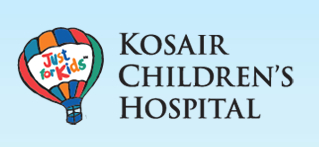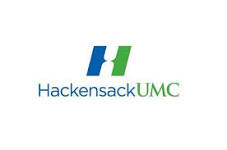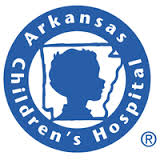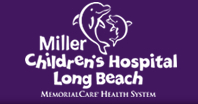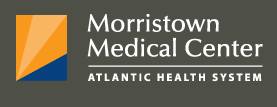A Study of Lenalidomide in Pediatric Subjects With Relapsed or Refractory Acute Myeloid Leukemia
| Status: | Completed |
|---|---|
| Conditions: | Blood Cancer, Blood Cancer, Hematology |
| Therapuetic Areas: | Hematology, Oncology |
| Healthy: | No |
| Age Range: | 1 - 18 |
| Updated: | 3/6/2019 |
| Start Date: | November 19, 2015 |
| End Date: | January 11, 2019 |
A Phase 2, Multicenter, Single-arm, Open-label Study to Evaluate the Activity, Safety and Pharmacokinetics of Lenalidomide (Revlimid®) in Pediatric Subjects From 1 to = 18 Years of Age With Relapsed or Refractory Acute Myeloid Leukemia.
To determine the activity of lenalidomide in the treatment of pediatric subjects with
relapsed/refractory acute myeloid leukemia (AML) (with second or greater relapse or
refractory to at least 2 prior induction attempts) measured by morphological complete
response defined as either a CR or CRi within the first 4 cycles of treatment.
relapsed/refractory acute myeloid leukemia (AML) (with second or greater relapse or
refractory to at least 2 prior induction attempts) measured by morphological complete
response defined as either a CR or CRi within the first 4 cycles of treatment.
This is a multicenter, open-label, single-arm, Phase 2, Simon's Optimal two-stage design
study, with an Optional Extension Phase (OEP), that will assess the activity, safety and
pharmacokinetics (PK) of lenalidomide in pediatric subjects from 1 to ≤ 18 years of age with
second or greater Relapsed or Refractory Acute Myeloid Leukemia (rrAML). A total of 43
evaluable participants (18 participants in Stage 1 and an additional 25 participants in Stage
2) are required for assessment of the primary endpoint. To allow for participants found to be
unevaluable for the primary endpoint due to an incorrect diagnosis, not having a disease
assessment post screening, or who discontinued prior to receiving lenalidomide, up to 4
additional participants may be enrolled for a maximum of 47 evaluable subjects across
approximately 70 sites. Approximately 50% of enrolled participants will be younger than 12
years of age to provide adequate PK data for this age subset.
If during Stage 1, at least 3 of 18 participants achieve a morphologic complete response
(either CR or CRi) within the first 4 cycles of study treatment, then the study will proceed
to Stage 2; otherwise, the study will be terminated. Similarly, if at the final analysis, at
least 8 of 43 evaluable subjects across Stages 1 and 2 achieve a response (CR/CRi) within the
first 4 cycles of study treatment, it will be concluded that lenalidomide has sufficient
activity in pediatric Acute Myeloid Leukemia (AML) to warrant subsequent study. The optional
extension phase (OEP) will allow participants who demonstrate clinical benefit, as assessed
by the Investigator at the completion of 12 cycles of lenalidomide therapy, to continue
receiving oral lenalidomide until they meet the criteria for study discontinuation. In the
OEP, only safety, dosing, concomitant medications/procedures, and second primary malignancies
(SPMs) will be monitored.
study, with an Optional Extension Phase (OEP), that will assess the activity, safety and
pharmacokinetics (PK) of lenalidomide in pediatric subjects from 1 to ≤ 18 years of age with
second or greater Relapsed or Refractory Acute Myeloid Leukemia (rrAML). A total of 43
evaluable participants (18 participants in Stage 1 and an additional 25 participants in Stage
2) are required for assessment of the primary endpoint. To allow for participants found to be
unevaluable for the primary endpoint due to an incorrect diagnosis, not having a disease
assessment post screening, or who discontinued prior to receiving lenalidomide, up to 4
additional participants may be enrolled for a maximum of 47 evaluable subjects across
approximately 70 sites. Approximately 50% of enrolled participants will be younger than 12
years of age to provide adequate PK data for this age subset.
If during Stage 1, at least 3 of 18 participants achieve a morphologic complete response
(either CR or CRi) within the first 4 cycles of study treatment, then the study will proceed
to Stage 2; otherwise, the study will be terminated. Similarly, if at the final analysis, at
least 8 of 43 evaluable subjects across Stages 1 and 2 achieve a response (CR/CRi) within the
first 4 cycles of study treatment, it will be concluded that lenalidomide has sufficient
activity in pediatric Acute Myeloid Leukemia (AML) to warrant subsequent study. The optional
extension phase (OEP) will allow participants who demonstrate clinical benefit, as assessed
by the Investigator at the completion of 12 cycles of lenalidomide therapy, to continue
receiving oral lenalidomide until they meet the criteria for study discontinuation. In the
OEP, only safety, dosing, concomitant medications/procedures, and second primary malignancies
(SPMs) will be monitored.
Inclusion Criteria:
- Participants must satisfy the following criteria to be enrolled in the study:
1. Male or female is 1 to ≤ 18 years of age at the time of signing the Informed Consent
Form / Informed Assent Form (ICF/IAF).
2. Participants (when applicable, parental/legal representative) must understand and
voluntarily provide permission to the ICF/IAF prior to conducting any study-related
assessments/procedures.
3. Participants have relapsed or refractory acute myeloid leukemia after at least 2 prior
induction attempts:
- Bone marrow aspirate or biopsy must have ≥ 5% blasts by morphology and/or flow
cytometry.
- Each block of chemotherapy is a separate reinduction attempt.
- Donor lymphocyte infusion (DLI) is considered a reinduction attempt.
4. Participants are willing and able to adhere to the study visit schedule and other
protocol requirements.
5. Participants have a Karnofsky score of ≥ 50% (participants ≥ 16 years of age) or a
Lansky score ≥ 50% (participants < 16 years of age).
6. Participants have a resting left ventricular ejection fraction (LVEF) of ≥ 40%
obtained by echocardiography.
7. Participants have recovered from the acute toxic effects of all prior chemotherapy,
immunotherapy, or radiotherapy prior to first dose. All prior treatment-related
toxicities must have resolved to ≤ Grade 2 prior to enrollment.
8. Regarding radiation therapy, time elapsed prior to first dose of lenalidomide:
- 2 weeks for local palliative radiation therapy (XRT).
- 8 weeks if prior craniospinal chemoradiation therapy (CRT) or if ≥ 50% radiation
of pelvis.
- 6 weeks if other bone marrow radiation has been administered.
9. Graft-versus-host disease criteria:
- Participants must be at least 2 months (from first dose of lenalidomide) from
stem cell infusion.
- Participants must have no evidence of active acute or chronic GVHD (Grade 0) for
4 weeks prior to the first dose of lenalidomide.
- If the participants have a history of maximum Grade 1 or 2 GVHD that was treated
with systemic steroid (≥ 0.5 mg/kg/day prednisone equivalents) or other
non-steroid systemic IST, the participant must be off all IST for at least 2
weeks, and must have ceased treatment doses of steroids for GVHD (≥ 0.5 mg/kg/day
prednisone equivalents) for at least 4 weeks.
- If the participants have a history of Grade 3 or greater GVHD, the
participants must be off all systemic IST for 4 weeks
- Topical therapy is permitted and does not imply the participants have active
acute or chronic GVHD.
- Physiologic dosing of hydrocortisone is permitted.
10. At least 4 weeks (from first dose) elapsed from donor lymphocyte infusion (DLI)
without conditioning.
11. Participants have adequate renal function, which is defined as:
- Creatinine clearance calculated using the Schwartz formula, or radioisotope
glomerular filtration rate (GFR) > 70 mL/min/1.73 m2.
12. Participants have adequate liver function, which is defined as:
- Total bilirubin is ≤ 2 mg/dL unless the increase in bilirubin is attributable to
Gilbert's Syndrome
- Aspartate aminotransferase (AST) is ≤ 3.0 x upper normal limit (ULN) for age. For
the purpose of this study, the ULN for AST is 50 U/L.
- Alanine transaminase (ALT) is ≤ 3.0 x upper normal limit (ULN) for age. For the
purpose of this study, the ULN for ALT is 45 U/L.
13. Female Children of Childbearing Potential (FCCBP), Female of Childbearing Potential
(FCBP) and male participants that have reached puberty must agree to undergo
physician-approved reproductive education and discuss the side effects of the study
therapy on reproduction with parent(s) and/or guardian(s).
14. All participants and/or parents/guardians must have an understanding that lenalidomide
could have a potential teratogenic risk. Female children of childbearing potential, is
defined as females who have achieved menarche and/or breast development in Tanner
Stage 2 or greater and have not undergone a hysterectomy or bilateral oophorectomy and
FCBP defined as a sexually mature woman who has not undergone a hysterectomy or
bilateral oophorectomy and has not been naturally postmenopausal for at least 24
consecutive months (ie, has had menses at any time in the preceding 24 consecutive
months) must meet the following conditions below (Note: Amenorrhea following cancer
therapy does not rule out childbearing potential):
- Medically supervised serum pregnancy tests with a sensitivity of at least 25
mIU/mL must be conducted in FCCBP/FCBP, including those who commit to complete
abstinence*. FCCBP/FCBP must have two pregnancy tests (with a minimum sensitivity
of 25 mIU/mL) prior to starting treatment with lenalidomide. The first pregnancy
test must be performed within 10 - 14 days prior to the start of lenalidomide
treatment and the second pregnancy test must be performed within 24 hours prior
to starting treatment with lenalidomide.
NOTE: The pregnancy test 10 to 14 days prior to initiation of lenalidomide may be omitted,
at the discretion of the investigator, for any FCCBP/FCBP who has high acuity disease
requiring immediate treatment with lenalidomide. The pregnancy test within 24 hours prior
to the first dose of lenalidomide is required to be performed.
The participants may not received Investigational Product (IP) until the investigator has
verified that the results of these pregnancy tests performed on Cycle 1 Day 1 are negative.
FCCBP/FCBP with regular or no menstrual cycles must agree to have pregnancy tests weekly
for the first 28 days of study participation and then every 28 days while on study, at
study Treatment Discontinuation Visit, and at Day 28 following IP discontinuation. If
menstrual cycles are irregular, the pregnancy testing must occur weekly for the first 28
days and then every 14 days while on study, at study Treatment Discontinuation Visit, and
at Days 14 and 28 following IP discontinuation.
- Female participants must, as appropriate to age and at the discretion of the study
Investigator, either commit to true abstinence* from heterosexual contact (which must
be reviewed on a monthly basis) and/or agree to the use of two reliable forms of
approved and effective contraceptive methods simultaneously. The two methods of
reliable contraception must include one highly effective method and one additional
effective (barrier) method (oral, injectable, or implantable hormonal contraceptive;
tubal ligation; intra-uterine device; barrier contraceptive with spermicide; or
vasectomized partner) without interruption, 28 days prior to starting lenalidomide
treatment, throughout the entire duration of study treatment including dose
interruptions and 28 days after the end of study treatment.
- All male and female participants must follow all requirements defined in the Pregnancy
Prevention Program.
16. Male participants, as appropriate to age and the discretion of the study
physician:
- Must practice true abstinence* or agree to use a condom during sexual contact with a
pregnant female or a female of childbearing potential while participating in the
study, during dose interruptions and for at least 28 days following lenalidomide
discontinuation, even if he has undergone a successful vasectomy or practices complete
abstinence.
Exclusion Criteria:
1. Participants have Down syndrome.
2. Participants have French-American-British classification (FAB) type M3 leukemia (acute
promyelocytic leukemia) or identification of t(15;17).
3. Participants have isolated central nervous system (CNS) involvement or extramedullary
relapse. (Participants with combined CNS/marrow relapse may be enrolled).
4. Participants had prior treatment with cytotoxic chemotherapy within 2 weeks of the
first dose of lenalidomide with the exception of hydroxyurea (allowed prior to the
first dose of lenalidomide and through Day 14 of Cycle 1) and intrathecal (IT)
cytarabine will be administered within 2 weeks prior to administration of
lenalidomide.
5. Participants have had prior treatment with biologic antineoplastic agents less than 7
days before the first dose of lenalidomide. For agents that have known adverse events
(AEs) occurring beyond 7 days after administration (ie, monoclonal antibodies), this
period must be extended beyond the time during which acute AEs are known to occur.
6. Participants have had prior treatment with lenalidomide.
7. Participant is pregnant or lactating.
8. Participants have an uncontrolled systemic fungal, bacterial, or viral infection
(defined as ongoing signs/symptoms related to the infection without improvement
despite appropriate antibiotics, antiviral therapy, and/or other treatment).
9. Participants has known Human Immunodeficiency Virus (HIV) positivity (participants who
are receiving antiretroviral therapy for HIV disease).
10. Participants have a prior history of malignancies other than AML unless the subject
has been free of the disease for ≥ 5 years from first dose of lenalidomide.
11. The presence of any of the following will exclude a participant from enrollment:
- Participants have any significant medical condition, laboratory abnormality, or
psychiatric illness that would prevent the participant from participating in the
study.
- Participants have any condition including the presence of laboratory
abnormalities, which places the participant at unacceptable risk if he/she were
to participate in the study.
- Participants have any condition that confounds the ability to interpret data from
the study.
12. Participants have cardiac disorders (Common Terminology Criteria for Adverse Events
[CTCAE] version 4.03 Grade 3 or 4).
13. Participants have a history of well-documented prior veno-occlusive disease (VOD).
14. Participants have any other organ dysfunction (CTCAE version 4.03 Grade 4) that will
interfere with the administration of the therapy according to this protocol.
We found this trial at
57
sites
Click here to add this to my saved trials
4900 Mueller Boulevard
Austin, Texas 78723
Austin, Texas 78723
(512) 324-0000
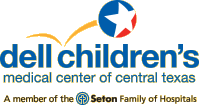
Dell Children's Medical Center of Central Texas Welcome to Dell Children
Click here to add this to my saved trials
Johns Hopkins University The Johns Hopkins University opened in 1876, with the inauguration of its...
Click here to add this to my saved trials
3333 Burnet Avenue # Mlc3008
Cincinnati, Ohio 45229
Cincinnati, Ohio 45229
1-513-636-4200

Cincinnati Children's Hospital Medical Center Patients and families from across the region and around the...
Click here to add this to my saved trials
Nationwide Children's Hospital At Nationwide Children’s, we are creating the future of pediatric health care....
Click here to add this to my saved trials
Connecticut Children's Medical Center Connecticut Children’s Medical Center is a nationally recognized, 187-bed not-for-profit children’s...
Click here to add this to my saved trials
University of Mississippi Medical Center The University of Mississippi Medical Center, located in Jackson, is...
Click here to add this to my saved trials
Nemours Children's Clinic At Nemours Children’s Clinic, Jacksonville, we've treated every child as we would...
Click here to add this to my saved trials
Children's Mercy Hospital Children's Mercy Hospitals and Clinics continues redefining pediatric medicine throughout the Midwest...
Click here to add this to my saved trials
Childrens Hospital Los Angeles Children's Hospital Los Angeles is a 501(c)(3) nonprofit hospital for pediatric...
Click here to add this to my saved trials
Kosair Children's Hospital For more than a century, Kosair Children's Hospital and its predecessor hospitals...
Click here to add this to my saved trials
Univ of Minnesota With a flagship campus in the heart of the Twin Cities, and...
Click here to add this to my saved trials
1211 Medical Center Dr
Nashville, Tennessee 37232
Nashville, Tennessee 37232
(615) 322-5000

Vanderbilt Univ Med Ctr Vanderbilt University Medical Center (VUMC) is a comprehensive healthcare facility dedicated...
Click here to add this to my saved trials
601 Children's Lane
Norfolk, Virginia 23507
Norfolk, Virginia 23507
(757) 668-7000

Children's Hospital of The King's Daughters Children
Click here to add this to my saved trials
Children's Hospital of Orange County For more than 45 years, CHOC Children’s has been steadfastly...
Click here to add this to my saved trials
Univ of Rochester Medical Center One of the nation's top academic medical centers, the University...
Click here to add this to my saved trials
Click here to add this to my saved trials
New York Medical College The College was founded in 1860 by a group of New...
Click here to add this to my saved trials
Alfred I. duPont Hospital for Children Nemours began more than 70 years ago with the...
Click here to add this to my saved trials
University of Michigan The University of Michigan was founded in 1817 as one of the...
Click here to add this to my saved trials
Children's Healthcare of Atlanta Whether treating a toddler in an emergency or supporting a teen...
Click here to add this to my saved trials
Click here to add this to my saved trials
Click here to add this to my saved trials
Click here to add this to my saved trials
Click here to add this to my saved trials
Univ of North Carolina Carolina’s vibrant people and programs attest to the University’s long-standing place...
Click here to add this to my saved trials
Click here to add this to my saved trials
225 E Chicago Ave
Chicago, Illinois 60611
Chicago, Illinois 60611
(312) 227-4000

Ann & Robert H. Lurie Children's Hospital of Chicago Ann & Robert H. Lurie Children
Click here to add this to my saved trials
University of Texas Southwestern Medical Center UT Southwestern is an academic medical center, world-renowned for...
Click here to add this to my saved trials
Click here to add this to my saved trials
Click here to add this to my saved trials
Hackensack University Medical Center Hackensack University Medical Center, part of the Hackensack University Health Network,...
Click here to add this to my saved trials
500 University Dr
Hershey, Pennsylvania 17033
Hershey, Pennsylvania 17033
(717) 531-6955

Penn State Milton S. Hershey Medical Center Penn State Milton S. Hershey Medical Center, Penn...
Click here to add this to my saved trials
Click here to add this to my saved trials
Click here to add this to my saved trials
Click here to add this to my saved trials
Arkansas Children's Hospital Arkansas Children's Hospital (ACH) is the only pediatric medical center in Arkansas...
Click here to add this to my saved trials
Miller Children's Hospital Miller Children
Click here to add this to my saved trials
Click here to add this to my saved trials
Midwest Children's Cancer Center The Medical College of Wisconsin Cancer Center is dedicated to providing...
Click here to add this to my saved trials
Click here to add this to my saved trials
Morristown Memorial Hospital Atlantic Health System – comprised of Morristown Medical Center, Overlook Medical Center,...
Click here to add this to my saved trials
Click here to add this to my saved trials
Click here to add this to my saved trials
Columbia University Medical Center Situated on a 20-acre campus in Northern Manhattan and accounting for...
Click here to add this to my saved trials
Click here to add this to my saved trials
Click here to add this to my saved trials
Phoenix Children's Hospital Phoenix Children's Hospital has provided hope, healing, and the best healthcare for...
Click here to add this to my saved trials
Click here to add this to my saved trials
2801 N Gantenbein Ave
Portland, Oregon 97227
Portland, Oregon 97227
(503) 413-2200
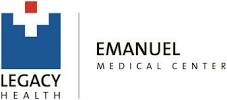
Legacy Emanuel Hospital and Health Center Legacy Emanuel is nationally known for expertise in critical...
Click here to add this to my saved trials
660 S Euclid Ave
Saint Louis, Missouri 63110
Saint Louis, Missouri 63110
(314) 362-5000

Washington University School of Medicine Washington University Physicians is the clinical practice of the School...
Click here to add this to my saved trials
Click here to add this to my saved trials
Click here to add this to my saved trials
Click here to add this to my saved trials
Click here to add this to my saved trials
Seattle Children's Hospital Seattle Children’s Hospital specializes in meeting the unique physical, emotional and developmental...
Click here to add this to my saved trials
Click here to add this to my saved trials







